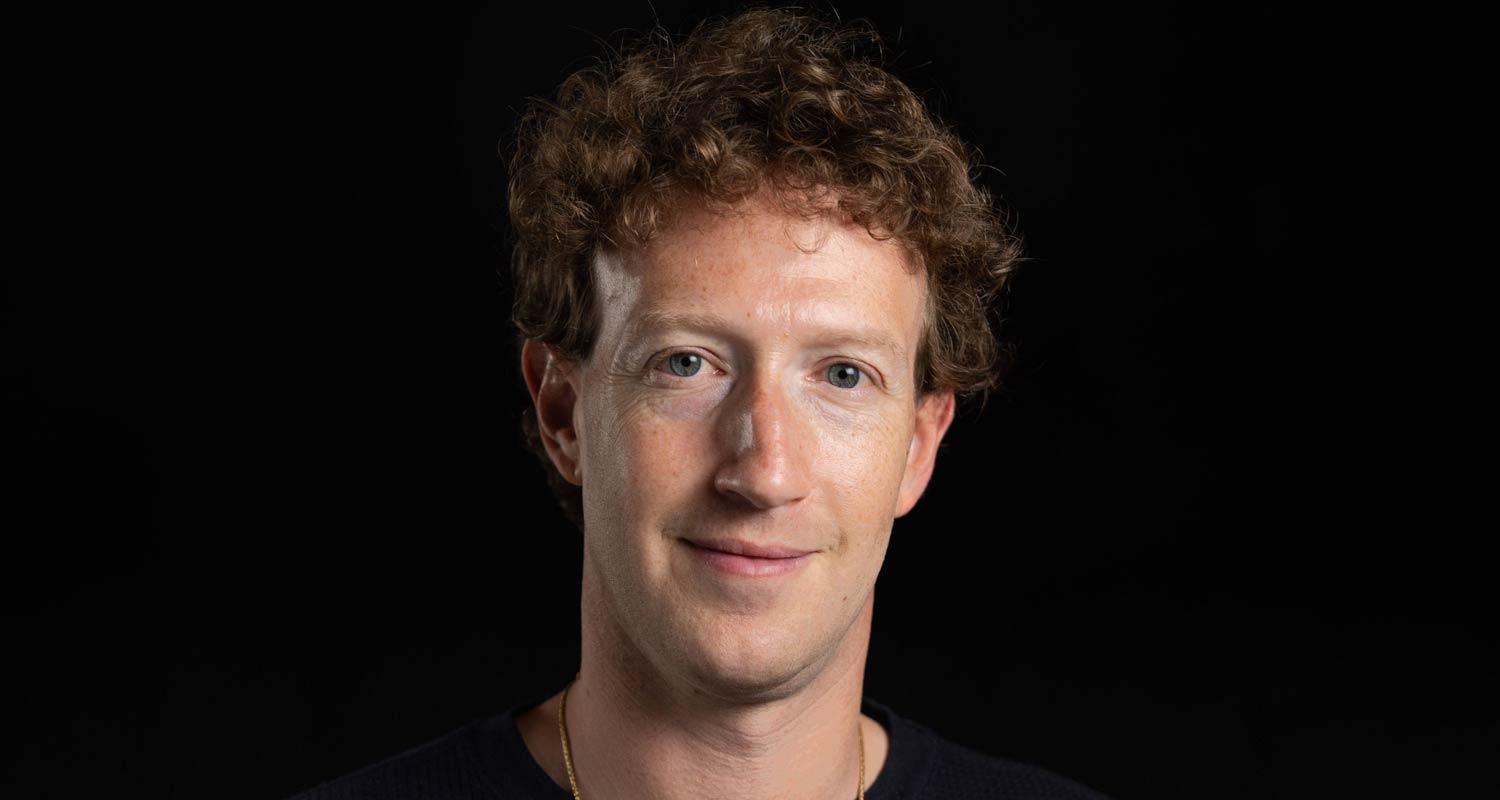 Mark Zuckerberg has long championed Meta Platforms’ open-source approach to artificial intelligence software — which lets other companies access and build on top of its technology — saying that having an American model as the underpinning of new products was key to ensuring US dominance over China in AI.
Mark Zuckerberg has long championed Meta Platforms’ open-source approach to artificial intelligence software — which lets other companies access and build on top of its technology — saying that having an American model as the underpinning of new products was key to ensuring US dominance over China in AI.
Now the emergence of DeepSeek, a state-of-the-art AI model from China, is pressure-testing Zuckerberg’s strategy and threatening the homegrown advantage for the US. The Chinese start-up says its technology uses a fraction of the cost and computing power of its American rivals, and it’s offering an open-source alternative to Meta’s Llama and other made-in-the-US models.
Despite hesitations about its connections to China, in an appearance on Joe Rogan’s podcast in early January the Meta CEO lauded DeepSeek as a “very advanced model” that was “doing really good work”. That sentiment has been echoed this week by OpenAI CEO Sam Altman, who said it’s “invigorating to have a new competitor”, and US President Donald Trump, who said on Monday that he views DeepSeek’s faster, less-expensive methods “as a positive, as an asset”.
But underneath the praise, Washington, Wall Street and Silicon Valley are aligned in their view of DeepSeek as a key competitor to Meta’s Llama. DeepSeek “should be a wake-up call for our industries that we need to be laser-focused on competing to win”, Trump added on Monday.
Meta and Zuckerberg have been the tech industry’s most vocal proponents of open source, arguing that making this kind of advanced technology freely available helps the entire industry move faster because companies can build off each other’s work. They’ve also warned about the threat of Chinese rivals doing the same.
“This is a huge geopolitical competition and China’s running at it super hard,” Zuckerberg said about AI this month on The Joe Rogan Experience. “If there should be an open-source model that everyone uses, we should want it to be an American model.”
Meta particularly wants to provide that model, given that it’s been the biggest investor in open source among the largest technology companies, said Luke Sernau, a staff researcher at Google’s DeepMind who previously worked at Meta.
AI race
“Part of their incentive for doing so was a chance to own the ecosystem,” Sernau said. “DeepSeek calls all of that into question.”
Though several Wall Street analysts on Monday suggested that DeepSeek’s innovation signalled Meta had fallen behind in the AI race, Meta shares rose 1.9% on Monday, even as US and European technology stocks collectively lost almost US$1-trillion in value. Investors may be focusing instead on Zuckerberg’s assertion that he’s willing to aggressively deploy capital to win the AI race.
On 24 January, he announced that the company plans to invest as much as $65-billion in AI-related projects in 2025, making the projected capital expenditure for this year more than double that of 2023. Meta is expected to provide more details about its future AI efforts Wednesday when it reports fourth-quarter earnings.
Read: DeepSeek AI should be a ‘wake-up call’ to US industry: Trump
To better understand the competition, Meta has set up an internal team tasked with analysing DeepSeek, including how it was built and what it can do — a strategy it has used with other major AI rivals like OpenAI’s GPT-4 and Google’s Gemini, according to people familiar with the matter, who asked not to be named discussing internal company efforts. Studying the Chinese model — which was trained using cheaper and less powerful chips than the ones US companies are stockpiling — could lower Meta’s own research and development costs, the people said.

“If there’s anything we know about Meta, it’s a pretty good copycat. They will copy some of the techniques that DeepSeek used and reduce their own costs,” said Ahmed Khan, a tech equity analyst for Morningstar, in an interview. “Meta is going to be a bit behind when they release their new model, but within the year they’ll be able to make up lost distance by using what DeepSeek did to improve its performance.”
DeepSeek’s ascent underlines one of the AI industry’s greatest debates: should tech companies open-source their technology?
“Open-source models are driving a significant shift in the industry, and that’s going to bring the benefits of AI to everyone,” Meta spokesman Jon Carvill said in an e-mailed statement, adding that Meta wants the “US to set the global AI standard, not China”. While some information from both Meta and DeepSeek’s models is public, neither company is disclosing the data sets they use for model training.
Opponents of opening up the technology suggest that doing so can benefit America’s adversaries, specifically China, in ways that aren’t purely economic. Venture capitalist Vinod Khosla said last May that Meta’s decision to open-source its Llama models was a “national security hazard” given how it could be used to advantage Chinese tech companies.
It’s possible that DeepSeek achieved its own advancements thanks in part to work that Meta and other AI companies have already done. Meta chief AI scientist Yann LeCun suggested as much in a post on 24 January. Still, LeCun said, that’s the goal of open-source technology.
“DeepSeek has profited from open research and open source” including from Meta, he posted on the company’s social media platform, Threads. “They came up with new ideas and built them on top of other people’s work. Because their work is published and open source, everyone can profit from it. That is the power of open research and open source.”
DeepSeek didn’t immediately respond to a request for comment seeking clarity on the company’s use of other open-source products, including Llama.
Foreign adversaries
The questions around open source have also yet to be settled, or even addressed head-on, on the policy side. The Joe Biden administration had sought to safeguard against harmful AI uses, particularly by foreign adversaries. It warned in October that the accidental or deliberate misuse of AI could bolster authoritarianism around the world, facilitate human rights abuses and cede the US’s competitive edge. Trump, who scrapped Biden’s AI executive order on the day of his inauguration, last week called for an interagency group to craft a new policy to ensure US AI dominance.
Jaime Yassif, vice president at the nonprofit Nuclear Threat Initiative, said she was optimistic that the new administration will strike a balance between advancing AI models, like Meta’s open-source Llama, and warding off threats. “There are tradeoffs from the benefits you get from open-source models and some of the national security risks,” particularly nuclear, chemical and biological risks, she said. “Those things are in contention.”
 Zuckerberg himself has acknowledged that Meta’s open-source approach could benefit Chinese rivals. The company formally blocks access to Llama in China based on geography, though it’s impossible to fully stop Chinese developers from accessing its models via other sources given the technology is openly available. In an interview last year, Zuckerberg said that even if the company did try to keep its technology proprietary, it was unlikely Meta would be able to “prevent them from being able to steal it anyways”. For him, he said, the tradeoff was worth it.
Zuckerberg himself has acknowledged that Meta’s open-source approach could benefit Chinese rivals. The company formally blocks access to Llama in China based on geography, though it’s impossible to fully stop Chinese developers from accessing its models via other sources given the technology is openly available. In an interview last year, Zuckerberg said that even if the company did try to keep its technology proprietary, it was unlikely Meta would be able to “prevent them from being able to steal it anyways”. For him, he said, the tradeoff was worth it.
“I think that locking everything down would hamstring us and make us more likely to not be the leaders,” he said. — Kurt Wagner and Riley Griffin, with Davey Alba and Josh Wingrove, (c) 2025 Bloomberg LP
Get breaking news from TechCentral on WhatsApp. Sign up here.

